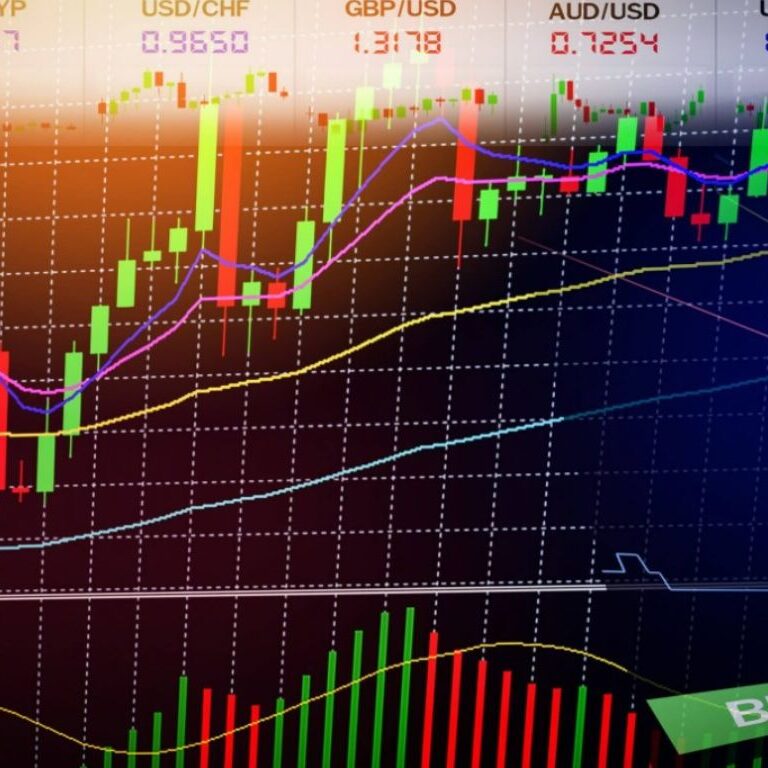Managing Trading Stress: 10 Tips for a Calm and Successful Trading Journey
Introduction
In the world of trading, stress is an unavoidable companion, regardless of whether you are new to the field or an experienced trader. The ability to effectively manage stress is essential for maintaining a sharp and concentrated mindset. This article aims to offer valuable insights and practical tips to assist you in effectively managing trading stress. By incorporating these strategies into your trading routine, you can enhance your performance and improve your overall well-being.
Trading can be a fast-paced and demanding endeavor characterized by constant fluctuations and high-pressure situations. The stress that accompanies trading can impact your decision-making abilities and hinder your potential for success. However, by adopting effective stress management techniques, you can navigate these challenges with greater resilience and achieve better outcomes. This article will provide you with the tools and knowledge necessary to manage stress effectively and optimize your trading experience.
Understanding Trading Stress
To effectively address and manage trading stress, it is vital to grasp its underlying nature. Trading stress encompasses the emotional and psychological strain that traders experience in response to the uncertainties and pressures inherent in financial markets. The volatile and unpredictable nature of trading can induce significant stress levels, which can subsequently impact a trader’s ability to make sound decisions. When subjected to high levels of stress, traders may succumb to poor decision-making and impaired judgment, resulting in unfavorable trading outcomes. Understanding the multifaceted aspects of trading stress is crucial in developing effective strategies to mitigate its effects and promote better trading performance.
Trading stress arises from various sources, including the fear of financial losses, market volatility, time constraints, and the pressure to outperform. The constant evaluation of risks and opportunities can be mentally and emotionally taxing, leading to increased stress levels. This stress response can hinder a trader’s ability to think clearly and objectively, impairing their judgment and decision-making process. Consequently, it becomes imperative for traders to recognize and address trading stress to minimize its adverse effects and create an environment conducive to making informed and rational trading decisions. By understanding the origins and impacts of trading stress, traders can implement appropriate stress management techniques that empower them to navigate the challenges of financial markets with greater composure and resilience.
Recognizing the Signs of Trading Stress
Recognizing the signs of trading stress is paramount in effectively managing its impact. By identifying these signs early on, traders can take proactive measures to prevent stress from escalating and negatively affecting their trading performance. Here are some common symptoms that indicate the presence of trading stress:
- Increased irritability: If you find yourself becoming easily agitated or experiencing frequent mood swings while trading, it may be a sign of elevated stress levels. Recognizing this irritability can help you take a step back and address the underlying stressors.
- Difficulty concentrating: Trading requires a high level of focus and concentration. However, if you find it challenging to stay focused or experience a scattered mind during trading sessions, it could be a sign of stress. The inability to concentrate may lead to poor decision-making and missed opportunities.
- Sleep disturbances: Stress can disrupt your sleep patterns, leading to difficulty falling asleep, staying asleep, or experiencing restless nights. Lack of quality sleep can further exacerbate stress levels and impact your overall well-being and trading performance.
- Excessive worry: Constant worrying about trades, market conditions, or potential outcomes can be a clear indicator of trading stress. Persistent worry consumes mental energy and can cloud your judgment, hindering your ability to make rational decisions.
- Physical ailments: Trading stress can manifest in physical symptoms such as headaches, stomachaches, muscle tension, or fatigue. These physical ailments serve as warning signs that your body is reacting to the stress you are experiencing.
By being aware of these signs, you can take timely action to address and alleviate stress. It’s essential to listen to your body and mind, acknowledging when stress is affecting your well-being. Engaging in stress-reducing activities, seeking support from fellow traders, and implementing stress management techniques can help you effectively cope with trading stress and maintain a balanced and focused mindset.
1. Set Realistic Expectations
Setting realistic expectations is vital in managing trading stress. Many traders experience stress because they set lofty and unattainable goals within a short timeframe. It’s crucial to establish targets that are both challenging and achievable, aligning with your trading strategy. By doing so, you can reduce unnecessary pressure and foster sustainable progress.
Consider your current skill level, experience, and market conditions when setting expectations. Recognize that trading is a continuous learning process, and success takes time. Set goals that allow for gradual improvement and growth, promoting a healthier mindset and reducing stress. Remember, setting realistic expectations doesn’t mean settling for mediocrity; it means being practical and understanding that trading success requires effort and dedication.
Regularly evaluate and adjust your expectations as you progress in your trading journey. Markets can be volatile, and outcomes may deviate from your initial projections. Being adaptable and flexible in your expectations will enable you to navigate challenges and fluctuations with greater ease. By setting realistic expectations, you free yourself from unnecessary pressure and create a more balanced and enjoyable trading experience. Keep in mind that trading is a marathon, not a sprint, and by adopting a realistic mindset, you can effectively manage stress and achieve sustainable growth in the long term.
2. Practice Proper Risk Management
Practicing proper risk management is crucial in reducing trading stress. It involves determining your risk tolerance and implementing strategies to limit potential losses. By effectively managing risk, you gain a sense of control and minimize the fear and anxiety associated with unpredictable market conditions.
Start by assessing your risk tolerance level, considering how much loss you are comfortable with for each trade and in your overall trading portfolio. Setting realistic boundaries based on your financial situation and emotional resilience allows for informed decision-making and prevents taking on excessive risks that could lead to heightened stress.
Implementing stop-loss orders is another vital aspect of risk management. These orders define the maximum loss you are willing to accept on a trade, protecting you from significant losses if the market moves against your position. By setting stop-loss levels, you reduce emotional burden and gain peace of mind, knowing that you have a predefined exit strategy in place.
3. Develop a Trading Plan
Developing a well-defined trading plan is a fundamental aspect of managing stress in trading. A trading plan serves as a roadmap, outlining your trading goals, strategies, and risk management techniques. By creating a comprehensive plan and sticking to it, you minimize impulsive decision-making and gain confidence in your trading approach, thus reducing stress levels.
A robust trading plan includes specific objectives, such as profit targets and risk limits, based on your individual trading style and risk tolerance. It outlines the strategies and methodologies you will employ to enter and exit trades, as well as the criteria for identifying potential opportunities. Additionally, a trading plan incorporates risk management techniques, such as position sizing and stop-loss orders, to protect your capital and limit potential losses.
By adhering to your trading plan, you avoid succumbing to emotional biases and making hasty decisions driven by fear or greed. It provides structure and discipline, enabling you to approach trading with a calm and rational mindset. When faced with market uncertainties, having a predefined plan to guide your actions instills confidence and reduces stress, allowing you to navigate the markets more effectively.
4. Use Positive Self-Talk
The power of positive self-talk is a valuable tool in managing trading stress. It involves replacing negative thoughts and self-doubt with affirmations and constructive self-talk. By consciously directing your inner dialogue towards positivity, you can significantly impact your trading mindset and reduce stress levels.
Practice self-awareness and catch negative thoughts as they arise during trading. Challenge these thoughts and reframe them in a positive and empowering manner. Instead of dwelling on past failures or uncertainties, remind yourself of your past successes and focus on your strengths as a trader. Affirmations such as “I am a disciplined and successful trader” or “I trust my trading instincts and make informed decisions” can help reinforce a positive mindset.
By cultivating a positive mindset, you enhance your resilience in the face of challenges and setbacks. Positive self-talk allows you to approach trading with confidence and optimism, enabling you to stay focused and make clearer decisions. Embracing positivity and self-belief contributes to reduced stress levels and improved trading performance.
Remember, managing trading stress goes beyond technical strategies; it involves cultivating a healthy mindset and developing strong emotional resilience. By developing a trading plan and practicing positive self-talk, you establish a solid foundation for effectively managing stress and enhancing your overall trading experience.
5. Take Regular Breaks
Taking regular breaks is a crucial strategy for managing trading stress. Trading for extended periods can lead to mental and physical fatigue, which can intensify stress levels and impair decision-making. By incorporating regular breaks into your trading routine, you allow yourself time to rest and recharge, leading to improved performance and reduced stress.
During these breaks, engage in activities that help you relax and clear your mind. Consider going for a walk, practicing deep breathing exercises, or engaging in mindfulness techniques. These activities can help alleviate stress and promote mental clarity, enabling you to approach trading with renewed focus and concentration.
By stepping away from the trading screen and taking breaks, you give yourself an opportunity to gain perspective and maintain a healthy work-life balance. Remember that trading is a marathon, not a sprint, and pacing yourself with regular breaks ensures sustainable productivity and reduces the risk of burnout.
6. Engage in Stress-Relieving Activities
In addition to incorporating breaks during your trading sessions, it’s essential to engage in stress-relieving activities outside of the trading environment. Finding activities that help you unwind and reduce stress is crucial for maintaining a balanced and resilient mindset.
Consider incorporating regular exercise into your routine. Physical activity releases endorphins, which are natural mood boosters. Whether it’s going for a jog, practicing yoga, or participating in a sport, exercise can help reduce stress levels and promote overall well-being.
Incorporating mindfulness practices, such as meditation or deep breathing exercises, can also be highly effective in managing stress. These techniques allow you to cultivate a calm and present state of mind, reducing anxiety and enhancing your ability to make clear and rational trading decisions.
Engaging in hobbies or activities that bring you joy and relaxation is equally important. Whether it’s painting, playing a musical instrument, or spending time with loved ones, these activities provide a healthy outlet for stress and contribute to a balanced lifestyle.
By prioritizing stress-relieving activities, both during and outside of trading sessions, you create a harmonious approach to managing stress. These activities help restore your energy, foster a positive mindset, and enhance your overall well-being, ultimately improving your trading performance. Remember, taking care of your mental and emotional health is just as important as mastering technical trading skills.
7. Seek Support from Fellow Traders
The power of community and support should not be underestimated when it comes to managing trading stress. Connecting with fellow traders who understand the challenges you face can provide a valuable source of guidance, encouragement, and perspective. Seek out trading communities, participate in forums, or consider forming a trading group where you can share experiences and insights. By engaging with like-minded individuals, you can alleviate stress and foster personal and professional growth.
Being part of a trading community allows you to learn from others’ experiences, gain new perspectives, and receive valuable feedback. You can exchange ideas, discuss trading strategies, and seek advice during challenging times. The camaraderie and support from fellow traders can provide a sense of belonging and motivation, helping you navigate the ups and downs of the trading journey with greater resilience and confidence.
8. Maintain a Healthy Lifestyle
Maintaining a healthy lifestyle is a crucial factor in managing trading stress. Your physical and mental well-being directly impact your ability to cope with stress effectively and perform at your best as a trader. Prioritizing key aspects of a healthy lifestyle can significantly contribute to stress reduction and overall well-being.
Adequate sleep is essential for rejuvenating your mind and body. Aim for a consistent sleep schedule and ensure you get enough rest each night. Quality sleep enhances cognitive function, emotional stability, and decision-making abilities, all of which are vital for successful trading.
In addition to sleep, maintaining a balanced diet is crucial. Fueling your body with nutritious foods provides the energy and nutrients needed for optimal brain function and emotional well-being. Incorporate a variety of fruits, vegetables, whole grains, lean proteins, and healthy fats into your diet to support overall health and vitality.
Regular exercise is another key component of a healthy lifestyle. Engaging in physical activity not only benefits your physical health but also releases endorphins, which are natural mood enhancers. Whether it’s cardiovascular exercises, strength training, or yoga, find activities that you enjoy and make them a regular part of your routine.
By prioritizing sleep, nutrition, and exercise, you enhance your body’s ability to cope with stress and maintain balance during demanding trading periods. A healthy lifestyle provides a strong foundation for managing trading stress effectively, allowing you to approach the markets with a clear and focused mindset.
9. Learn from Mistakes
In the world of trading, mistakes are inevitable, but they also present valuable opportunities for growth and improvement. Rather than dwelling on losses or past errors, it’s crucial to view them as learning experiences. Take a proactive approach by analyzing your mistakes objectively, identifying the underlying causes, and extracting valuable lessons from them. By embracing a growth mindset, you can transform setbacks into stepping stones towards success, ultimately reducing stress in the process.
When reviewing your mistakes, strive for objectivity and avoid self-blame or judgment. Instead, focus on understanding the factors that contributed to the error and how you can prevent similar situations in the future. This process of self-reflection and learning allows you to refine your trading strategies, enhance risk management techniques, and improve decision-making skills. Embracing a mindset of continuous learning and improvement not only reduces stress but also empowers you to become a more resilient and successful trader.
10. Consider Professional Help
While implementing self-help strategies can be effective in managing trading stress, there may be times when seeking professional help is necessary. If stress becomes overwhelming or starts to significantly impact your overall well-being and trading performance, it’s essential to consider consulting with a therapist or counselor who specializes in working with traders.
A professional therapist can provide a supportive and non-judgmental environment where you can explore your emotions, concerns, and challenges related to trading stress. They can help you develop personalized strategies and coping mechanisms to manage stress more effectively. Additionally, they can assist in addressing any underlying psychological factors that may be contributing to the stress.
Professional help can offer a fresh perspective, practical tools, and techniques tailored to your individual needs. Therapists and counselors with expertise in working with traders understand the unique psychological demands of the trading profession and can provide valuable guidance to enhance your mental and emotional well-being. Seeking professional help is a proactive step towards self-care and can contribute to improved trading performance and overall life satisfaction.
Remember, there’s no shame in seeking support when needed. Taking care of your mental and emotional health is paramount, and professional help can be a valuable resource on your journey to effectively managing trading stress.
Conclusion
Managing trading stress is crucial for traders to maintain a clear and focused mindset, make informed decisions, and achieve consistent results. By setting realistic expectations, practicing proper risk management, developing a trading plan, using positive self-talk, taking regular breaks, engaging in stress-relieving activities, seeking support from fellow traders, maintaining a healthy lifestyle, learning from mistakes, and considering professional help when needed, you can effectively manage trading stress and thrive in the dynamic world of financial markets.
FAQs
Q1: Can stress affect my trading performance?
Yes, trading stress can have a significant impact on your performance. When under stress, your decision-making abilities may become impaired, leading to poor judgment and impulsive actions. Stress can also affect your emotional state, causing increased anxiety and fear, which can hinder your ability to make clear and rational trading decisions. It’s essential to manage stress effectively to maintain a focused and disciplined mindset for successful trading.
Q2: How can I set realistic expectations as a trader?
Setting realistic expectations is crucial for managing trading stress. To set realistic expectations, start by understanding your capabilities, strengths, and weaknesses as a trader. Assess the market conditions, your trading strategy, and the resources available to you. Set goals that are achievable within a reasonable time frame and align with your trading approach. Avoid setting lofty goals that may create unnecessary pressure and lead to frustration. By setting realistic expectations, you can reduce stress and maintain a more sustainable and balanced trading journey.
Q3: What can I do to alleviate stress during trading sessions?
To alleviate stress during trading sessions, it’s important to incorporate various stress management techniques. First, take regular breaks to rest and recharge. Engage in activities that help you relax and clear your mind, such as going for a walk, practicing deep breathing exercises, or listening to calming music. Additionally, practicing mindfulness and staying present in the moment can help reduce stress levels. By focusing on the present instead of worrying about future outcomes, you can maintain a calmer state of mind during trading sessions.
Q4: Should I share my trading experiences with fellow traders?
Yes, sharing your trading experiences with fellow traders can be highly beneficial. Connecting with other traders who understand the challenges and emotions associated with trading can provide a sense of camaraderie and support. Joining trading communities, participating in forums, or forming a trading group allows you to share insights, exchange ideas, and learn from each other’s experiences. It can provide a platform for mutual encouragement, guidance, and learning. Sharing experiences with fellow traders can help alleviate stress and foster personal and professional growth in the trading journey.
Q5: When should I consider seeking professional help for trading stress?
If trading stress becomes overwhelming and starts to significantly impact your overall well-being and trading performance, it may be appropriate to seek professional help. Signs that indicate the need for professional assistance include persistent and excessive stress, difficulty managing emotions, significant changes in mood or behavior, and an inability to cope with stress despite self-help efforts. A therapist or counselor who specializes in working with traders can provide personalized guidance, strategies, and support to help you effectively manage stress and enhance your trading performance. Seeking professional help is a proactive step towards self-care and can contribute to your long-term success as a trader.







